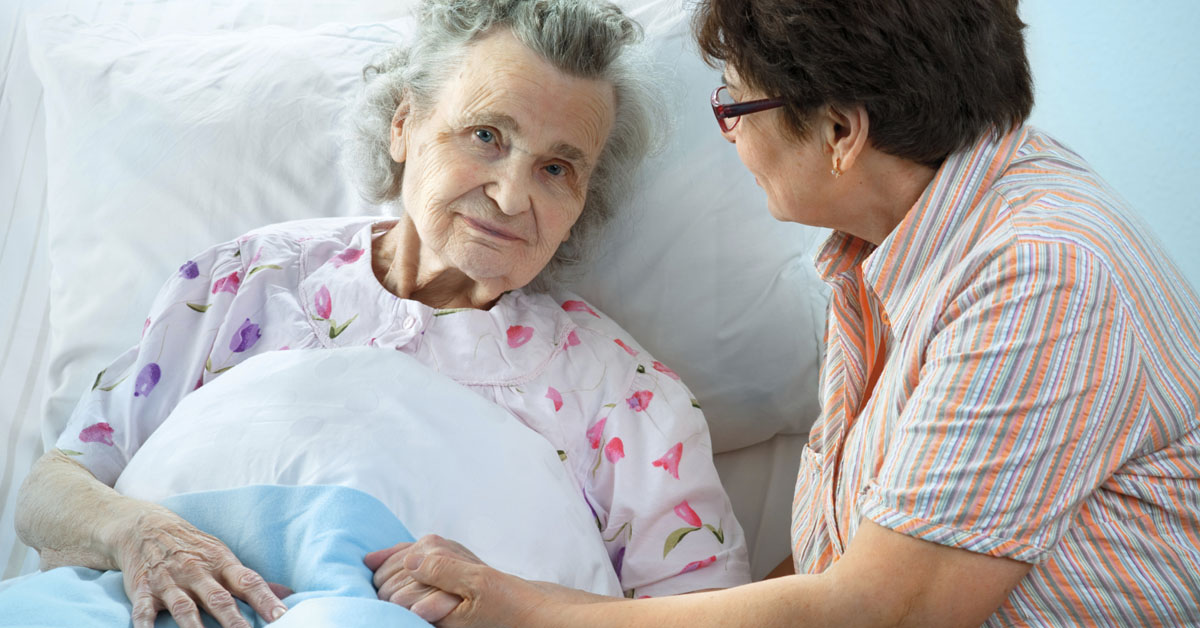
Effects of End-of-Life Discussions on the Mental Health of Bereaved Family Members
Most people prioritize improvements in quality of life at the end of life over extension of life.1 Similarly, 86% of Medicare beneficiaries express a preference to die at home.2 In practice, a home death happens for slightly less than half of cancer patients and less than a third of patients with non-cancer diagnoses.3 Physician-led end-of-life (EOL) discussions prove critical in helping patients consider their EOL preferences and in providing care concordant with patient wishes. Moreover, EOL discussions correlate with improved quality of life for dying patients, and, in turn, improved quality of life at the end of life correlates with improved bereavement outcomes for family caregivers.4
The Timing of EOL Discussions
A study recently published in the Journal of Pain and Symptom Management confirms these associations and adds new and interesting observations about the timing of EOL discussions. Yamaguchi et al. surveyed the family members of over 9,000 decedents. They defined EOL discussions as “discussions with physicians about the preferred place of care or resuscitation.” For bereaved family members, the absence of such discussions correlated with a 25% greater likelihood of depression (17.3% vs. 21.6%) and a 16% greater likelihood of complicated grief (13.7% vs. 15.9%).
Interestingly, the best outcomes occurred when the EOL discussion took place more than three months before death. EOL discussions one to three months before death had lesser, but still improved outcomes. EOL discussions within a month of death correlated with negligible improvement. Compared to families who recalled an end-of-life discussion more than three months before death, those reporting no end-of-life discussion had a 39% greater likelihood of depression. Meanwhile, the no-discussion group had only a 3% greater likelihood of depression compared to the less-than-one-month group.
Researchers also measured quality of death using the Good Death Inventory score and quality of care using the Care Evaluation Score. EOL discussions in general were associated with statistically significant but small improvements in both. However, the earlier the EOL conversation, the greater the improvement in quality of death and quality of care.
What Is a Good Death?
According to a study performed by Karen E. Steinhauser, PhD, and colleagues from the Durham Veterans Affairs Medical Center, Duke University, and the University of Chicago, identified six major components of a good death.6 These components consist of:
- Pain and symptom management
- Clear decision-making
- Preparation for death
- Completion
- Contributing to others
- Affirmation of the whole person
The study authors go on to say, although there is no right way to die, these six themes may be used as a framework for understanding what study participants tend to value at the end of life. For patients and families, psychosocial and spiritual issues are as important as physiological concerns.
Conclusion
End-of-life discussions may contribute to reducing depression, and complicated grief in bereaved family members and enable patients to experience quality end-of-life care and a good death.
References
- Quinn KL, Krahn M, Stukel TA, Grossman Y, Goldman R, Cram P, Detsky AS, Bell CM. No time to waste: an appraisal of value at the end of life. Value in Health. 2022 Nov 1;25(11):1902-9.
- Barnato AE, Anthony DL, Skinner J, Gallagher PM, Fisher ES. Racial and ethnic differences in preferences for end-of-life treatment. Journal of General Internal Medicine. 2009 Jun;24:695-701.
- Vega ML, Chihuri ST, Lackraj D, Murali KP, Li G, Hua M. Place of Death From Cancer in US States With vs Without Palliative Care Laws. JAMA Network Open. 2023 Jun 1;6(6):e2317247-.
- Wright A, Zhang B, Ray A, et al. Associations between end-of-life discussions, patient mental health, medical care near death, and caregiver bereavement adjustment. JAMA. 2008; 300 (14): 1665-73.
- Yamaguchi T, Maeda I, Hatano Y, Mori M, Shima Y, Tsuneto S, Kizawa Y, Morita T, Yamaguchi T, Aoyama M, Miyashita M. Effects of end-of-life discussions on the mental health of bereaved family members and quality of patient death and care. Journal of Pain and Symptom Management. 2017 Jul 1;54(1):17-26.
- Steinhauser KE, Clipp EC, McNeilly M, Christakis NA, McIntyre LM, Tulsky JA. In search of a good death: observations of patients, families, and providers. Annals of internal medicine. 2000 May 16;132(10):825-32.





